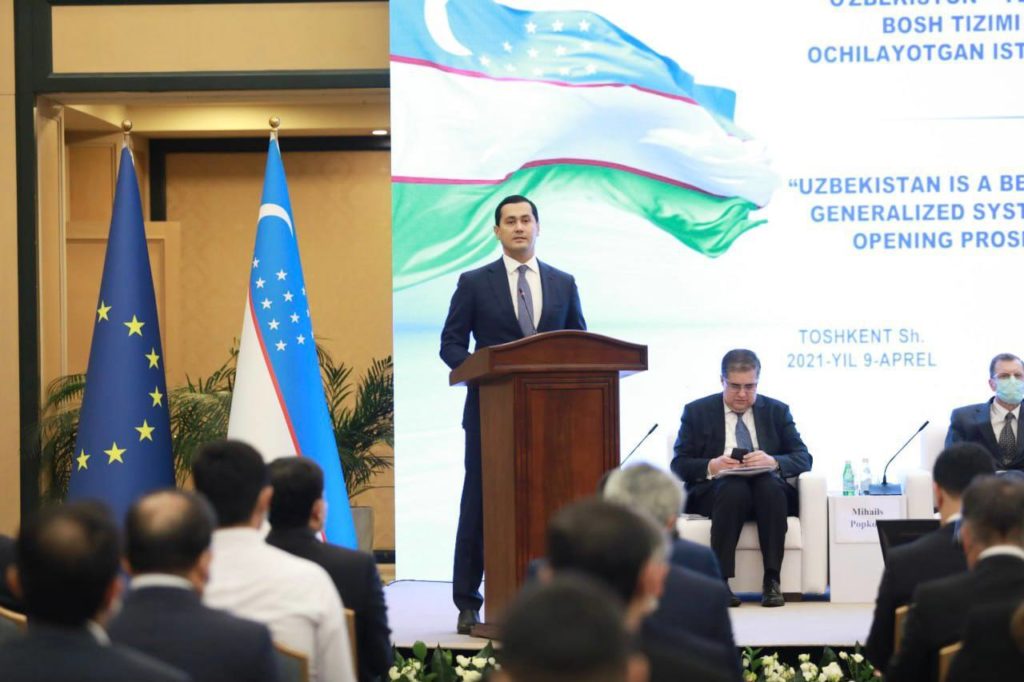The European Union has officially added Uzbekistan to the list of countries benefiting from the GSP +. 6,200 Uzbek products will be able to access the European market without customs duties.
This article was originally published on Novastan’s French website on 9 April 2021.
The European Commission officially added Uzbekistan to the list of countries benefiting from its Generalised System of Advanced Preferences (GSP +) this Friday, 9 April. Tashkent will be able to export 6,200 products to the European Union (EU) market without any import duties from 10 April.
Want more Central Asia in your inbox? Subscribe to our newsletter here.
Previously, Uzbekistan was on the GSP list, which allows exports of 3,000 goods without tariffs and 3,200 goods with reduced tariffs. Inclusion on the GSP + list therefore means a doubling in the number of products without tariffs.
This statute received the green light from the European Commission on 30 November. The decision was then approved by the European Parliament and the European Council. Currently, only 9 countries benefit from it in the world, including Kyrgyzstan since 2016.
“An important step”
In a statement, the Uzbekistan’s Ministry of Investments and Foreign Trade welcomed the country’s new status: “This is an important step in the relations between the EU and Uzbekistan, which will further deepen dialogue as well as trade.” The ministry organised an official event at a hotel in Tashkent to mark the occasion.
“I am convinced that this status will give a powerful impetus to investors and representatives of the private sector, mainly from EU countries, in the implementation of promising projects in Uzbekistan,” the deputy prime minister and minister of investments, Sardor Umurzakov, said. The event was attended by the newly appointed EU Ambassador to Uzbekistan Charlotte Adriaen.
In the background, a new agreement
According to a European source, SPG + is just one signal among many. In fact, obtaining this status does not detract from the fact that Uzbekistan is following a multi-directional approach combining Chinese investments and a rapprochement with the West with the EU and a potential membership of the World Trade Organisation, all the while keeping observer status in the Eurasian Economic Union, dominated by Russia.
Read more on Novastan: Uzbekistan: towards greater cooperation with Iran?
Uzbekistan is also in the process of negotiating Extended Partnership and Cooperation Agreements (EPCA) with the European Union. These agreements look to replace the Partnership and Cooperation Agreement (PCA) in effect since 1999. The EPCA has a much broader scope than the SPG + status, encompassing justice, trade, human rights as well as corruption and terrorism prevention.
As the Uzbek media Gazeta.uz notes, seven rounds of negotiations have already taken place on the EPCA since they started in 2018, while a final position is expected for the first half of 2021.
Etienne Combier
Editor-in-chief of Novastan France
Translated from French by Valentine Baldassari
 Uzbek products obtain privileged access to the European Union
Uzbek products obtain privileged access to the European Union 



